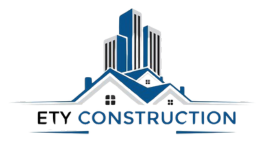Construction Project Management: Everything You Need to Know
Construction Project Management
In business, it’s important to prioritize your various tasks and goals to maximize your time and efficiency while working toward success. In the construction world, this means knowing how to manage projects in a way that gets the job done quickly and safely without sacrificing quality.
By following these tips on construction project management, you’ll be sure that all of your projects get completed on schedule, on budget, and with no hassles or issues!
What is construction project management?
In construction project management, the project manager manages and oversees all aspects of a construction project. The construction project manager coordinates the various parties involved, including subcontractors, suppliers, and clients. A construction project may be as small as building a single-family home or as large as building an entire city.
Regardless of size, the construction process shares many common steps overseen by the construction project manager. Before any work can commence on a property, detailed drawings must first be created that detail how exactly each step will take place from start to finish. These drawings are usually made by architects who specialize in designing buildings or engineers who specialize in developing roads and bridges.
In today’s business world, construction project management is vital to the operations of many industries. From home renovation projects to large commercial building projects, there are plenty of situations where you need someone to ensure the project goes smoothly from start to finish.
The role of the construction project manager
The construction project manager is responsible for all aspects of the project, from start to finish. This includes budgeting, scheduling, and ensuring that the project stays on schedule. The construction project manager also ensures that projects are completed per building codes and other regulations. The job title is sometimes abbreviated as CPM or CPMM.
The skills required to be a successful construction project manager
To be a successful construction project manager, you must have strong organizational skills and the ability to manage people under challenging circumstances. A construction project manager must be able to anticipate problems and make decisions under pressure. Communication skills are also crucial in this position, as a construction project manager needs to relay information from one stakeholder or team member to another. Finally, a construction project manager must have excellent analytical skills to ensure that projects meet deadlines, budgets, and design requirements.
The benefits of construction project management
Project management is a crucial process for any construction project’s success, whether residential or commercial. Construction project managers are responsible for managing the planning, implementation, and completion of all aspects of a construction project. As a result, they must understand every aspect, from design through installation. Below are some benefits of hiring a construction project manager for your next job:
- They can make sure that everything gets done on time and within budget.
- They have the experience and expertise needed to produce quality results in the shortest amount of time possible.
- They know how to deal with unforeseen setbacks while staying on budget and within deadlines.
Conclusion
Project management is about turning ideas into reality. With a great project manager, any idea can become a reality. Construction project management is the process of planning and executing projects that involve construction. The project manager oversees every aspect of the project from inception to completion.
The first step in construction project management is understanding your client’s needs and working with them to create a plan that suits their needs while respecting their budget. Another important part of construction project management is managing resources, so it’s best to think about how many people you need, what equipment you’ll need, and what materials will be required for each job phase. The final step in construction project management is anticipating and predicting problems before they arise so that you’re prepared when they do happen.

